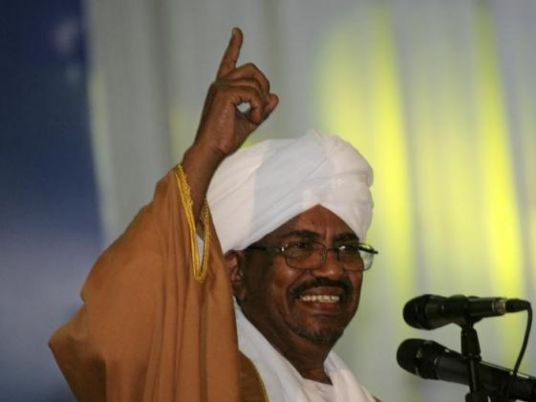
In the wake of the Tiran and Sanafir handover, Sudan has called on Egypt to engage in direct negotiations over the disputed border territories of Halayeb and Shalateen. Failing this, Sudan proposes to resort to means of international arbitration — the same way Egypt regained from Israel their sovereignty over Taba.
The Halayeb triangle and town of Shalateen, on the border between Egypt and Sudan and extending up to the coast of the Red Sea, have been disputed since the mid 20th Century. Egypt has exercised administration over the area since the 1990's despite Sudan's claim of sovereignty over the land.
In a statement published by the official Sudanese news agency SUNA on Sunday, the Sudanese Ministry of Foreign Affairs said it will be taking its lead from the agreement between Egypt and Saudi Arabia over the islands of Tiran and Sanafir and will follow the procedures necessary to assert Sudan's right to Halayeb and Shalateen.
“The Ministry of Foreign Affairs has been following the agreement between the Arab Republic of Egypt and the Saudi Kingdom over the return of Tiran and Sanafir to Saudi Arabia,” the statement said, adding, “The agreement is of importance to Sudan as it relates to the Sudanese region of Halayeb and Shalateen and the Red Sea coast in the area.”
“In 1958, Sudan filed a complaint to the UN Security Council in which it confirmed its sovereign rights to Halayeb and Shalateen. It kept renewing the complaint in order to assert its rights,” the statement said, calling on Egypt to cooperate in negotiations or else face international arbitration.
Meanwhile, the Sudanese call for negotiations has stirred anger among Egyptian political parties, which have criticized the untimely pressure from Khartoum regarding the decade-long dispute. They urged the government to close down dialogue with Sudan on the matter, saying that Egypt has proof of its sovereignty over Halayeb and Shalateen.
Hossam al-Khouly, deputy chief of leftist Wafd Party, criticized Khartoum's timing in bringing up the controversy, asserting that Egypt possesses documents that prove Halayeb and Shalateen are Egyptian.
Speaking to privately-owned newspaper Youm 7, Khouly expressed the need for Egypt to firmly reject the Sudanese request.
Akmal Nagaty, member of the Future of the Nation Party, said, “Halayeb and Shalateen are Egyptian territory. If Sudan resorts to international arbitration, we should show them the strength of our country and handle the issue like we did in Taba.”
“While Sudan and Egypt should be unified against the Renaissance Dam, which threatens both countries, Sudanese factions should not raise such petty issues as this divides the two peoples,” he told Youm 7. The Halayeb and Shalateen dispute, one such petty issue, should be dealt with by reference to maps, he added.
Major General Raouf al-Sayyed, deputy chief of the Egyptian National Movement Party, said it is better not to respond to Sudan's request, as international arbitration would at any rate fall in favor of Egypt’s interests.
Tareq Mahmoud, secretary general of the Long Live Egypt Coalition, said that the Sudanese foreign ministry's statement is the result of pressure from Turkey and Qatar following the demarcation agreement between Egypt and Saudi Arabia.
In a statement on Monday, Mahmoud added that the Qatari Foreign Minister Mohamed bin Abdel Rahman Al-Thani paid a secret visit to Sudan last week and met with President Omar al-Bashir and Sudanese officials. Mahmoud claimed that an agreement was reached between Qatar and the officials that Sudan would demand back Halayeb and Shalateen.
He added that Sudan has taken a hostile stance towards Egypt since the 30 June mass protests that lead to the removal of former president Morsi. This was made clear from Sudan's siding with Ethiopia in negotiations over the Renaissance Dam, and in Sudan's sheltering of fugitive Muslim Brotherhood officials involved in terrorist crimes.
The Qatari minister’s visit to Sudan, according to Mahmoud, ended with Qatar offering financial support to Sudan.
Edited translation from Al-Masry Al-Youm and Youm 7




